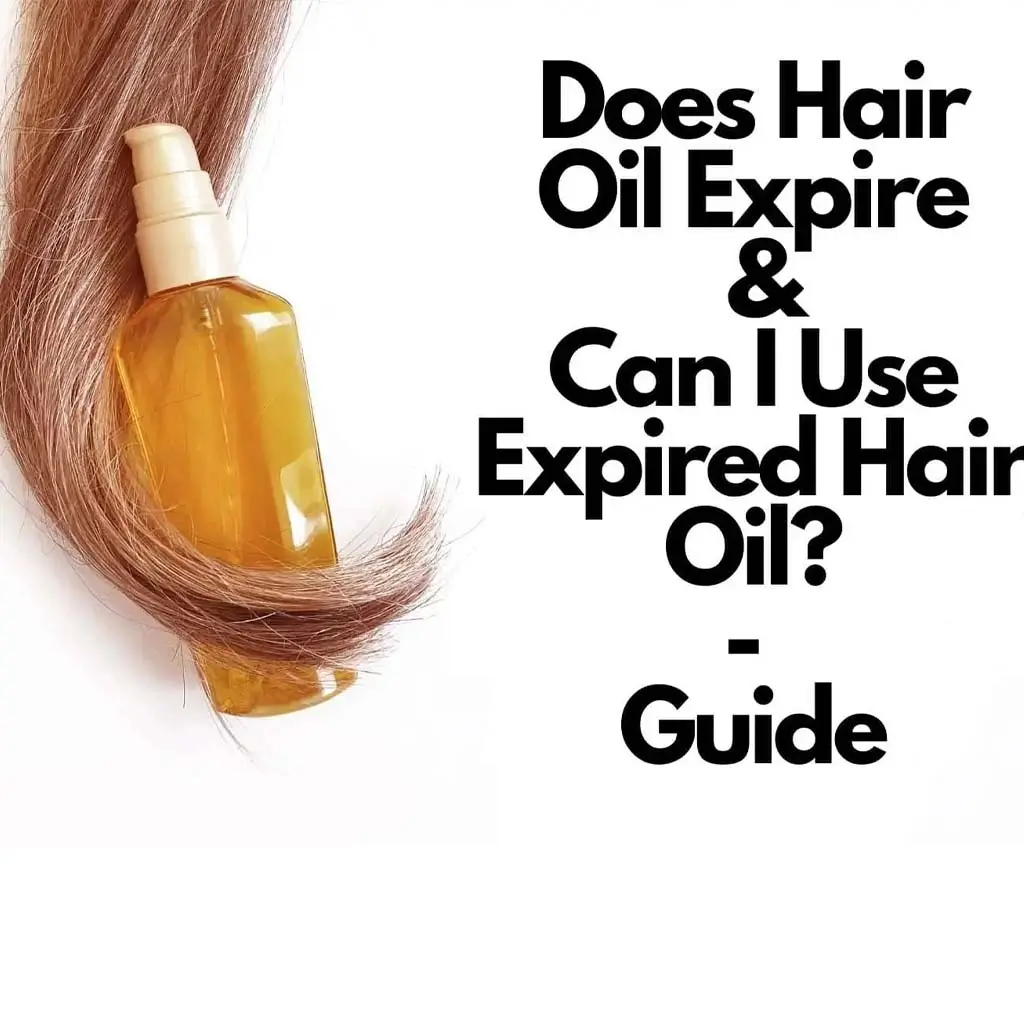Introduction
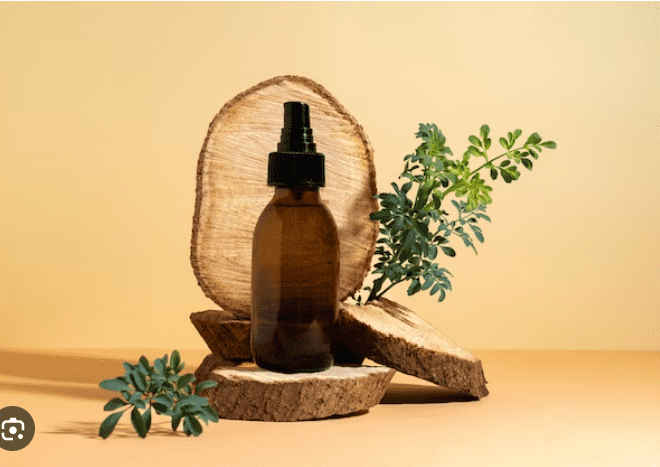
Hair oil is a common haircare product that many people use to nourish and condition their hair. But, have you ever wondered if hair oil has an expiration date? Does it go bad? Does hair oil expire? In this article, we will explore the shelf life of hair oil and answer the question: does it expire? We will also provide you with tips on how to know if your hair oil is expired and what to do if it is. So, if you have a bottle of hair oil sitting in your bathroom cabinet and you’re not sure if it’s still good to use, keep reading!
Understanding the expiration of hair oil
Understanding the expiration of hair oil is important to ensure that you are using a product that is safe and effective for your hair. While hair oil does not have a specific expiration date, it can go bad over time. The shelf life of hair oil can vary depending on its ingredients and the way it is stored.
Oils that are exposed to heat and sunlight may deteriorate more quickly, while oils stored in cool, dark places can last longer. Signs that your hair oil may be expired include changes in color, texture, or smell. If you notice any of these signs, it is best to discard the product and purchase a fresh bottle. In the next section, we will discuss the potential risks of using expired hair oil and why it is important to replace it. Stay tuned!
How to determine if your hair oil has expired

Determining whether your hair oil has expired is crucial to maintain the health and condition of your hair. While hair oil may not have a specific expiration date, there are several indicators that can help you determine its shelf life.
The first thing to look out for is any changes in color. If your hair oil has turned murky or discolored, it is a clear sign that it may have expired. Similarly, if you notice a change in texture, such as a thickening or separation of the oil, it is best to err on the side of caution and replace it. Lastly, pay attention to the smell of your hair oil. If it has a rancid or off-putting odor, it is a clear indication that it has gone bad.
Using expired hair oil can lead to adverse effects on your hair, such as dryness, irritation, or even breakage. In the next section, we will explore the potential risks of using expired hair oil and why it is essential to replace it promptly. Stay tuned!
Factors that affect the shelf life of hair oil
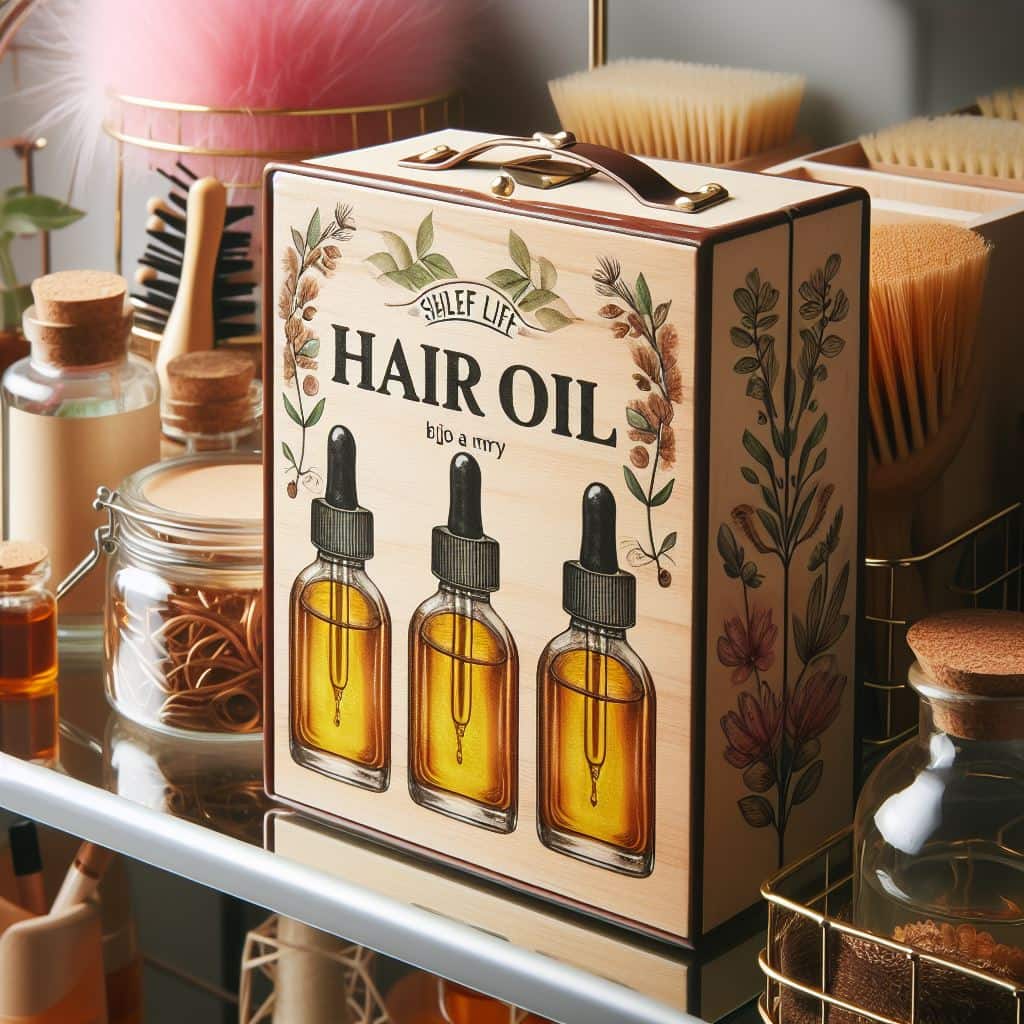
Now that we have established the importance of determining that does hair oil expire, it is equally important to understand the factors that can affect the shelf life of hair oil. These factors can vary depending on the type of oil and how it is stored.
- One significant factor is the quality of the oil itself. Higher quality oils tend to have a longer shelf life compared to lower quality ones. This is because premium oils are typically produced using better extraction methods and have fewer impurities, making them less prone to spoilage.
- Another factor to consider is the type of oil. Different oils have different chemical compositions and react differently to environmental conditions. For example, oils high in polyunsaturated fats, such as flaxseed or grapeseed oil, are more prone to oxidation and spoiling compared to oils with high levels of saturated fats, such as coconut oil.
- Storage conditions also play a crucial role in determining the shelf life of hair oil. Exposure to heat, light, and air can accelerate the deterioration process of the oil. It is essential to store your hair oil in a cool, dark place, preferably in a tightly sealed container to minimize contact with air.
In the next section, we will discuss the potential risks of using expired hair oil and why it is vital to replace it promptly. Stay tuned to ensure the health and vitality of your hair!
Signs of expired hair oil
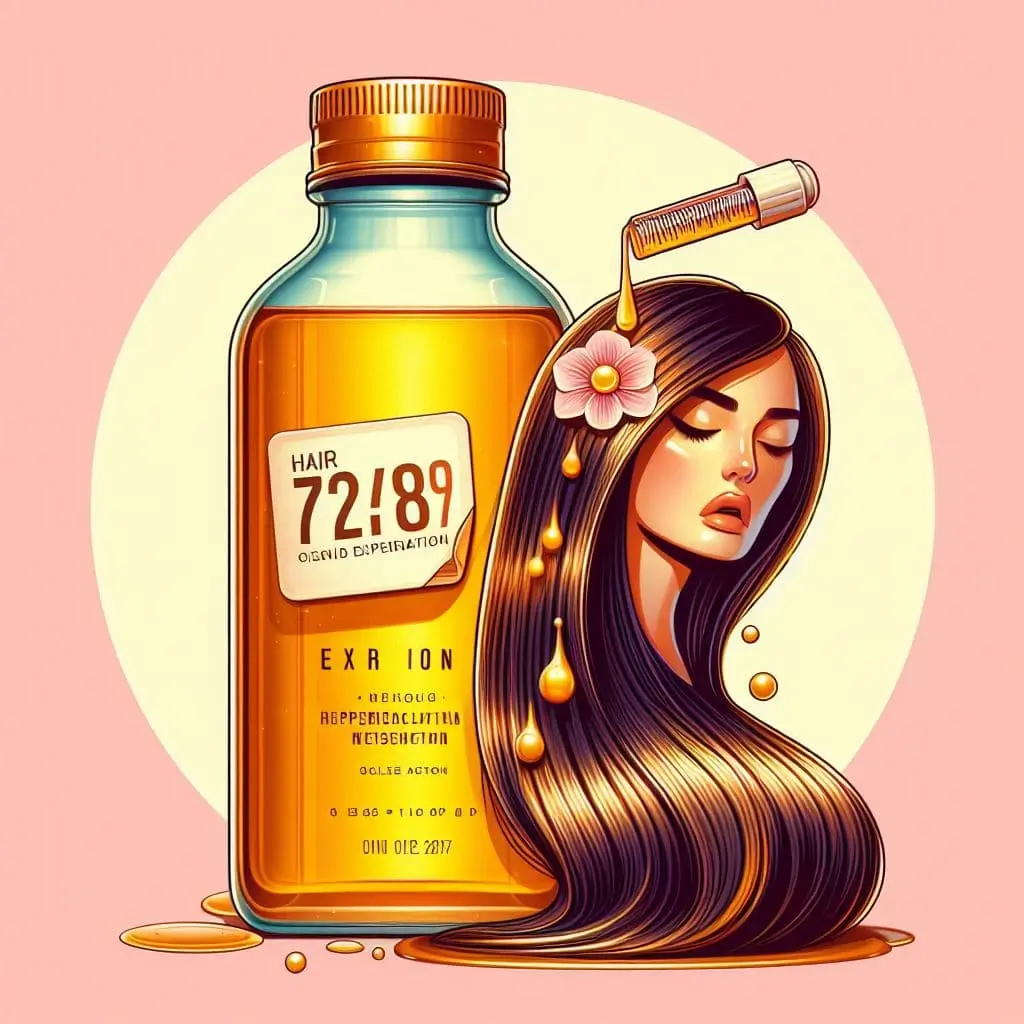
In this section, we will discuss the signs that indicate your hair oil has expired. Using expired hair oil can potentially lead to negative consequences for your hair and scalp health. So Does your Hair Oil Expire? Yes, is the clear response to this query. It’s a common misconception that oils don’t expire. However, depending on how they degrade, oils that have expired may cause illness in people. Every cooking oil has a shelf life and will eventually deteriorate; the rate at which this happens will vary depending on the type, usage, and environmental factors.
- Change in color and consistency: When hair oil expires, it may undergo changes in color and consistency. It may become darker or develop a cloudy appearance. Additionally, expired oil may thicken or become clumpy, indicating that it has started to break down.
- Unpleasant odor: Another noticeable sign of expired hair oil is a rancid or unpleasant odor. Oils that have gone bad often emit a sour or stale smell. If you notice a strong, off-putting scent from your hair oil, it is time to replace it.
- Ineffective results: Expired hair oil may not provide the same benefits it did when it was fresh. If you find that your hair oil is no longer delivering the desired results, it could be a sign that it has expired or become ineffective.
- Irritation or allergic reactions: Using expired hair oil can also lead to scalp irritation or allergic reactions. If you experience itching, redness, or irritation after applying hair oil, it is advisable to discontinue use and check the expiration date.
To ensure the health and effectiveness of your hair oil, it is crucial to be aware of these signs of expiration. In the next section, we will provide useful tips on how to properly store hair oil to prolong its shelf life. Stay tuned!
Proper storage and handling of hair oil
Properly storing and handling your hair oil is essential to prolong its shelf life. Here are some useful tips to consider:
1. Keep it in a cool and dark place: Exposing hair oil to constant light and heat can speed up the oxidation process, causing it to expire faster. Store your hair oil in a cool and dark place, such as a cabinet or drawer, to maintain its freshness.
2. Seal it tightly: The air can also contribute to the deterioration of hair oil. Make sure to tightly seal the bottle after each use to minimize air exposure. If your hair oil came with a separate cap and dropper, use the cap when not in use to prevent air from getting in.
3. Avoid contamination: To prevent bacterial growth, avoid touching the bottle’s nozzle or dropper directly on your scalp. Instead, dispense a few drops into your hands or a separate container before applying to your hair.
4. Check the expiration date: Always be mindful of the expiration date on the bottle. Using hair oil past its expiry date can negatively impact its effectiveness and may pose a risk to your hair and scalp health.
By following these storage and handling practices, you can maximize the shelf life of your hair oil and continue to enjoy its benefits for a longer time. Remember, a well-preserved hair oil means healthier hair!
Extending the shelf life of hair oil
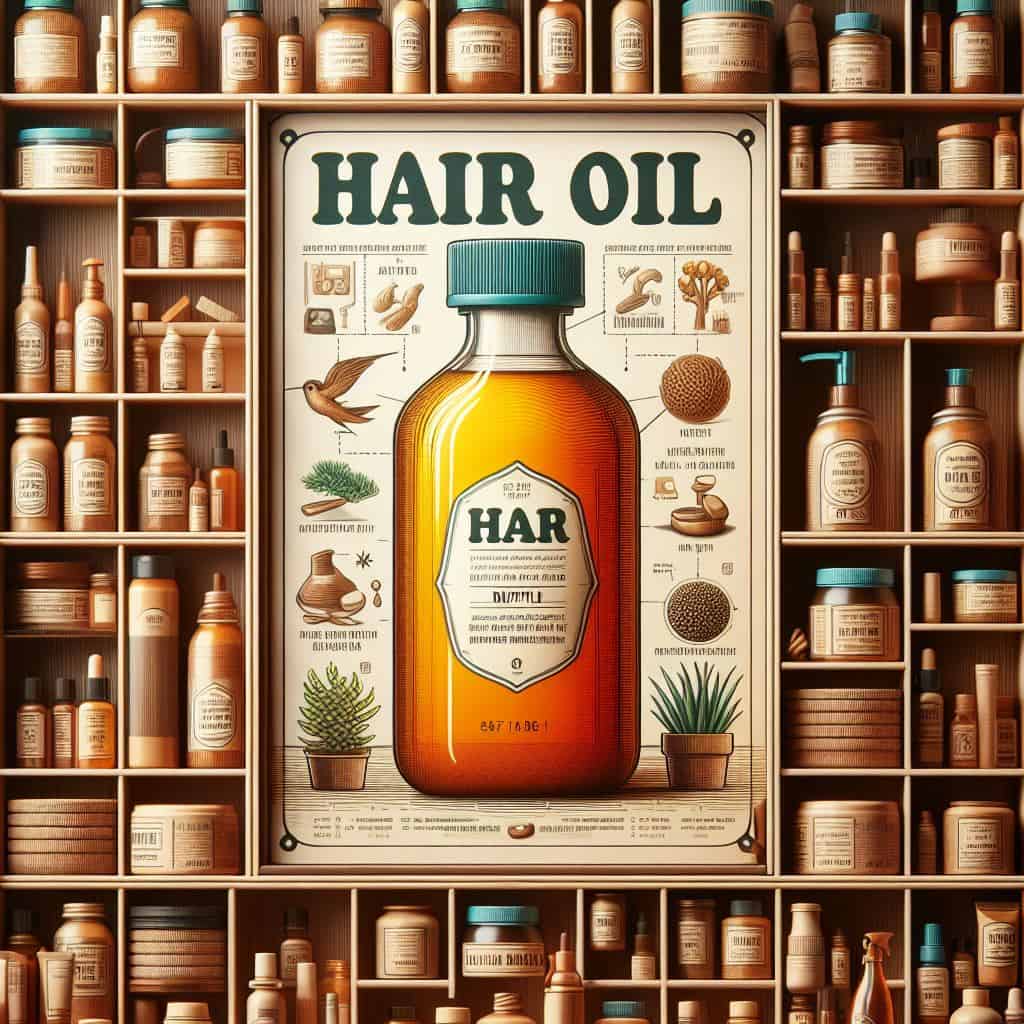
In addition to proper storage and handling, there are a few additional measures you can take to extend the shelf life of your hair oil. These tips will help maintain its freshness and effectiveness, ensuring maximum benefits for your hair:
- Keep it away from water: Water can cause hair oil to spoil quickly. Make sure to store your hair oil away from areas with high humidity, such as the bathroom or kitchen. Also, avoid using wet hands or utensils when handling the oil, as this can introduce moisture and potentially contaminate the product.
- Avoid exposure to air: Even with a tightly sealed bottle, air can still find its way into the oil. To further protect it from oxidation, consider transferring your hair oil to a smaller, airtight container as you use it up. This will help reduce the amount of air trapped within the bottle and prolong its shelf life.
- Keep track of usage: It’s important to use your hair oil regularly to prevent it from sitting around for too long. While it may not completely expire, the effectiveness of the oil may diminish over time. Therefore, it’s best to purchase hair oils in quantities that you can consume within a reasonable period, allowing you to experience the full benefits of the product.
By implementing these extra precautions, you can ensure that your hair oil remains fresh and potent throughout its shelf life. Remember, investing in proper storage and handling practices will not only lengthen the lifespan of your hair oil but also help you achieve healthier and more beautiful hair in the long run.
Types of Oils And Their Shelf Life’s
Types of Hair Oil | Shelf Life | Benefits |
Edible Argan Oil | 2 years at 25°C | Edible argan oil, rich in heart-healthy monounsaturated fats and antioxidants, not only promotes cardiovascular health but also adds a distinctive nutty flavor to culinary creations. |
Cosmetic argan oil | 1 year | Cosmetic argan oil, prized for its rich vitamin E content and moisturizing properties, nourishes and revitalizes the skin and hair, contributing to a healthy and radiant appearance. |
Coconut oil | 2 years | Very useful hair emollient that can penetrate the hair shaft more than any other oil |
Castor oil | 1 year | Castor oil, a versatile natural emollient, nurtures skin and hair with moisturizing and antimicrobial benefits, while also offering potential as a gentle laxative. |
Olive oil | 12–18 months | Olive oil, a heart-healthy choice abundant in monounsaturated fats and antioxidants, enhances culinary delights and supports skin health with its moisturizing properties. |
Sesame oil | 2-3 Years | Sesame oil, rich in antioxidants and anti-inflammatory properties, not only adds a distinctive flavor to cooking but also promotes skin and hair health through its nourishing and moisturizing qualities. |
Essential oils | 1–2 years | Essential oils, concentrated extracts from plants, offer diverse therapeutic benefits, including aromatherapy, stress relief, and skin and hair nourishment, depending on the specific oil and application. |
These all are Mentioned at an Optimal Temperature and All these oils Should be Kept Away from Sunlight. Their shelf life would also Matter at what Conditions they are kept as mentioned above.
Conclusion
In conclusion, understanding the shelf life of hair oil is essential for maintaining its freshness and effectiveness. By following the proper storage and handling techniques mentioned in this blog, you can extend the lifespan of your hair oil and maximize its benefits. Keeping it away from water, avoiding exposure to air, and using it regularly are key steps to ensure its potency. While hair oil may not expire, its effectiveness may diminish over time. Therefore, it is important to purchase hair oils in quantities that you can consume within a reasonable period. By doing so, you can experience the full benefits of the product and achieve healthier and more beautiful hair.
Remember, investing in proper storage and handling practices is not only necessary for extending the shelf life of your hair oil, but also for maintaining its quality and maximizing its benefits in the long run.
If you are willing to grow your hair like it did Never Before, Make sure to Visit the Article on Hair transformation Using Rosemary And Cloves!
FAQ
What happens if I use expired hair oil?
When the hair oil has expired, it loses its ability to soften, hydrate, treat, and improve your hair. If that happens, then you know it’s time to dump it.
How long can you keep hair oil?
Hair oils with extended shelf lives, like olive and coconut oils, can be used for up to a year. However, some oils, like almond and jojoba oils, have shorter shelf lives and ought to be used within six months.
Do high-quality base oils expire, too?
Indeed. Whether or not they are kept in the refrigerator, base oils can eventually go rancid. Purchasing base oils in bulk is not advised unless you know you will regularly use a significant amount of them.
Base oils dilute essential oils for use in body scrubs, bath bombs, body massage blends, and aromatic blends, among other applications.
To get the most out of your topical application, it is advised that you use a premium, cold-pressed, unrefined vegetable, nut, or seed oil—such as almond, jojoba, grapeseed, or argan oil—in combination with one or more essential oils.
Do essential oils have a shelf life?
The American College of Healthcare Sciences asserts that essential oils undergo gradual changes rather than spoiling. Avoid breathing in or putting expired essential oils on your skin because it's difficult to determine what happens to them internally and whether they're still safe to use.
Can oil be used after expiry date?
Yes, is the clear response to this query. It's a common misconception that oils don't expire. However, depending on how they degrade, oils that have expired may cause illness in people. Every cooking oil has a shelf life and will eventually deteriorate; the rate at which this happens will vary depending on the type, usage, and environmental factors.

